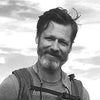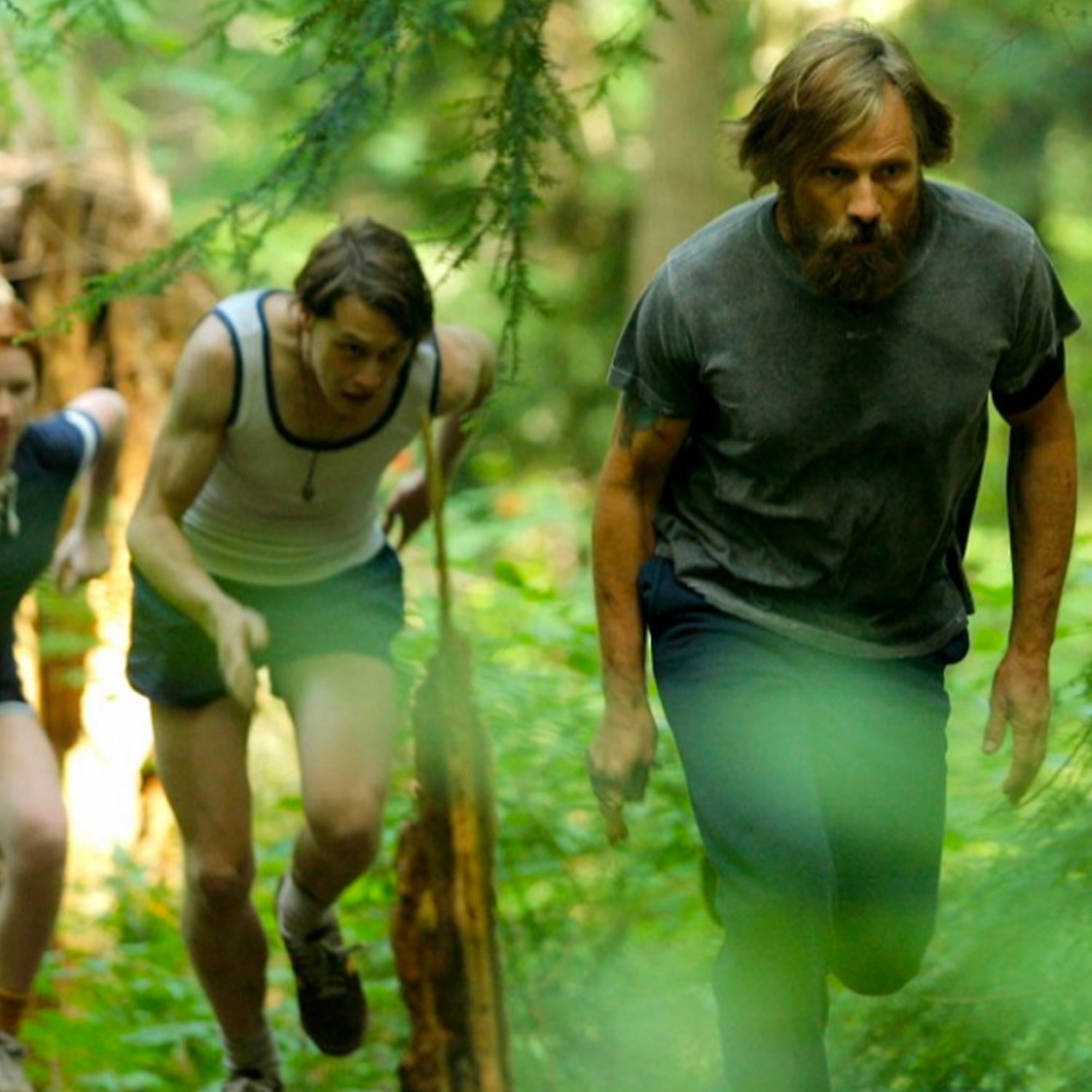I’m maybe 30 seconds into when I realize I don’t have what it takes to live off the grid with my family. The movie opens with Ben (played by ) leading his children on a hunt, tracking a deer to the edge of a river while wielding bows and large knives. The whole family is caked in mud, like they’re hiding from the alien trophy hunter in Predator. After the oldest son kills the deer with a knife, he takes a large bite out of the heart, blood smearing all over his face. The scene is ritualistic and unsettling, but it’s not the raw deer offal that makes me realize I’m not cut out for this brand of wilderness parenting.
My wife and I have seven-year-old twins. We live a relatively adventurous family life, full of surf trips, pump track sessions, and camping in the Southern Appalachians. There are month-long road trips through the American West, mountain bike camps, and polar plunges in remote mountain lakes. I think we can all agree that too much screen time is bad and playing in the woods is good, but checking out of society altogether and living an entirely wilderness-based life the way Ben has at the beginning of Captain Fantastic isn’t a solution to the trappings of 21st century child-rearing we’d all like to avoid.
The movie follows Ben and his six children, ranging in age from about six to 17 as they live, Swiss Family Robinson style, in a lush forest in the Pacific Northwest. Leslie, Ben’s wife and the mother of his children (played by ), is being treated in a hospital in Arizona for bipolar disorder, while the father carries on with the business of raising the children in the woods a few states away. That business consists mostly of knife fight training, intense cardio, hunting, rock climbing, quite a bit of book learning (these kids are wicked book smart, way beyond their years), and the occasional family band jam session. Ben has clearly engineered a thoughtful, wilderness-based lifestyle for his family—free range parenting to the max.
When things with Leslie take a turn for the worse, the family takes a road trip to Arizona, navigating their giant, retrofitted school bus through the America that Ben has been trying so hard to avoid. There, they meet and contend with Leslie’s parents and their extended family, the perfect contrast to Ben and the kids: suburban, upscale, and haughty. The family tries to maintain its principles (even hunting for game along the highway when they’re hungry) but all of a sudden there are hot dogs, soft drinks, and video games—all of the things that plague and tempt the rest of us on a daily basis.
Judgments come fast and hard from both sides of the spectrum. Leslie’s family is worried the kids will get hurt running through the woods with knives and opts to give them a more traditional upbringing. Ben and his kids are offended by the excess of the family’s McMansion and the amount of screen time the cousins get. And why should Ben subject his children to a public school system that teaches to the lowest common denominator?
None of the tensions here are new, but they’re more timely than ever as more parents seek to opt out of our social media, drive-thru society. Nature deficit is a legitimate concern and obesity rates are ridiculous. Kids today are over-programmed, over-tested and under exercised. Home schooling doesn’t go far enough in some parents’ minds, so now “un-schooling” is a thing. Reverting to a more primal way of life that eschews modern values and temptations has become the answer for many families.
I’m a writer who makes a career out of wilderness-based stories. A large portion of those stories involve taking my kids on various adventures. I’ll admit my kids still don’t get enough time outside, but Ben has taken wilderness parenting too far. I’m not sure why a six-year-old needs to learn how to wield a knife as a weapon. And the notion of denying your kids access to a formal education is borderline criminal in my mind. My wife and I wouldn’t have careers without our educations. School isn’t some sort of shackle. It’s opportunity, even if it’s imperfect. Teach your kids at home—fine—but make sure those home lessons can translate into opportunities down the road.
It’s easy to romanticize the appeal of dropping out and building a cabin in the woods. Modern norms can feel almost toxic, (see: high fructose corn syrup, Snapchat, most pop singers). Watching Ben lead his kids on a trad climb up a rock face with incredible exposure, and seeing how the kids dig deep to find the strength to finish a tough climb, is totally badass. I absolutely should take my kids out of this world full of diabetes and ennui and teach them how to field dress a deer while discussing the nuanced beauty of the Bill of Rights. But I also want my kids to go to school dances and play shortstop, because there’s value in asking a girl to dance and being a part of a team with other kids, too. I want them to learn how to get along with people who don’t share their same opinions. Modern society might have given us chicken nuggets, but it also gave us the mountain bike and family game night.
Parenting is all about maintaining balance—fostering a life that’s not so severe in either direction. A life where my kids get the time they need outside but also learn how to navigate life in a broader world. And I think I can raise my kids in that world of vast temptations without them giving into thoughtless consumption and bad habits. A healthy childhood should be a mix of wilderness experiences and modern experiences. Both are important.
����
There is a livable middle ground between the two lifestyle approaches presented in Captain Fantastic, and the film moves toward that conclusion as Ben and his kids engage with Leslie’s family. The film revels in the fact that parenting is a practice riddled with booby traps and that no parent has it figured out. It doesn’t present the perfect model of parenting, but you do see a father who’s devoted to his children. It makes me want to try harder with my own family. I might not agree with the extreme nature of his approach, but I can recognize that his decisions come from a good place. And seeing this movie makes me want to spend more time in that good place myself.
Graham Averill is a special contributor to Raising Rippers.


